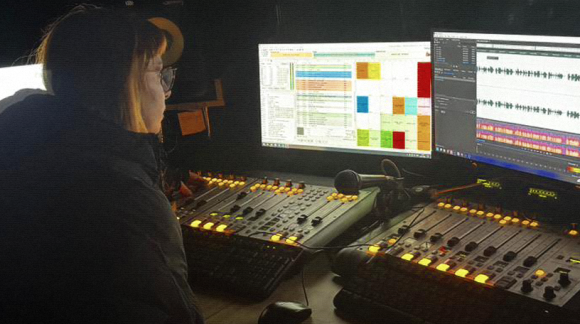Ukraine went down one position to 97th in the World Press Freedom Index of the international human rights organization “Reporters without Borders” (RSF), published on April 20.
“It wasn’t just governments that harassed journalists. The pandemic and the ensuing lockdowns fuelled social tension and expressions of animosity towards the media, especially when health crises coincided with elections. Reporters were attacked by unidentified individuals in at least seven of the region’s countries. They included Ukraine (down 1 at 97th), where journalists were attacked by exasperated local businessmen and passers-by. The Institute for Mass Information logged more than 170 physical attacks in Ukraine, representing three quarters of the press freedom violations registered in the country”, the RSF report reads.
Belarus slid by five positions and took 158th place due to “an unprecedented crackdown (against the press – n/ed.) in an attempt to cover up the massive street protests in response to the contested presidential election result”.
Russia lost one position and took 150th place in the RSF index. The country, according to the report, is moving towards an increasingly repressive model against independent journalists and mass media.
“In Russia (down 1 at 150th), the independent media fought for months, despite a great deal of harassment, to report the reality of the Covid-19 pandemic and to combat the government’s claims and erroneous figures. In December 2020, Moscow finally acknowledged a coronavirus death toll that was three times the official figure. Not content with suppressing online articles by using the disinformation law in effect since 2019, the authorities beefed it up by means of a series of amendments”, RSF report said.
Poland went down by two positions (from 62th to 64th position). After strengthening control over state-owned media the government keeps policy of “repolonisation” of private mass media in order to influence its editorial line or, in other words, to censor them. “ Privately-owned media are exposed to tax, commercial and legislative pressure, as seen in Poland’s “repolonisation” of the media, which has so far included a proposed tax on advertising income, the acquisition of local media by a state-controlled company, and the proposed political regulation of social media. “
The top ten RSF Press Freedom Index includes Norway, Finland, Sweden, Denmark, Costa Rica, the Netherlands, Jamaica, New Zealand, Portugal and Switzerland.
“The press freedom situation in Germany is nonetheless still classified as “fairly good,” as is the case in the United States (down 1 at 44th), despite the fact that Donald Trump’s final year in the White House was marked by a record number of assaults against journalists (around 400) and arrests of members of the media (130), according to the US Press Freedom Tracker, of which RSF is a partner. As a result of falling four places, Brazil joined the countries coloured red, indicating that the press freedom situation there is classified as “bad”. The vilification and orchestrated public humiliation of journalists have become trademarks of President Bolsonaro, along with his family and closest allies. Brazil shares the “bad” classification with India (142nd), Mexico (143rd) and Russia (down 1 at 150th), which deployed its repressive apparatus to limit media coverage of protests in support of Kremlin opponent, Alexei Navalny.
China (177th), which continues to take Internet censorship, surveillance and propaganda to unprecedented levels, is still firmly anchored among the Index’s worst countries, which are indicated in black on the World Press Freedom map. Right below China is the same trio of totalitarian countries that have historically occupied the bottom three places. Two are Asian: Turkmenistan (up 1 at 178th) and North Korea (up 1 at 179th). The third is African: Eritrea (down 2 at 180th). Regardless of their continent, these countries maintain absolute control over all news and information, enabling the first two to claim they had no Covid-19 cases and the third to maintain complete silence about the fate of 11 journalists who were arrested 20 years ago, some of whom have allegedly been held in metal containers in the middle of a desert”.
It is noted that “Norway is ranked first in the Index for the fifth year running even though its media have complained of a lack of access to state-held information about the pandemic. Finland maintained its position in second place while Sweden (up 1 at 3rd) recovered its third place ranking, which it had yielded to Denmark (down 1 at 4th) last year. The 2021 Index demonstrates the success of these Nordic nations’ approach towards upholding press freedom.
”
In general, Reporters Without Borders notes that journalism is completely or partly blocked in 73% of the countries where press freedom has been monitored.
“This year’s Index, which evaluates the press freedom situation in 180 countries and territories annually, shows that journalism, journalism, which is arguably the best vaccine against the virus of disinformation, is totally blocked or seriously impeded in 73 countries and constrained in 59 others, which together represent 73% of the countries evaluated. These countries are classified as having “very bad,” “bad” or “problematic” environments for press freedom, and are identified accordingly in black, red or orange on the World Press Freedom map.”
” The Index data reflect a dramatic deterioration in people’s access to information and an increase in obstacles to news coverage. The coronavirus pandemic has been used as grounds to block journalists’ access to information sources and reporting in the field. Will this access be restored when the pandemic is over? The data shows that journalists are finding it increasingly hard to investigate and report sensitive stories, especially in Asia, the Middle East and Europe., “the report said.
As IMI reported, in 2020 RSF raised Ukraine by 6 positions in World Press Freedom Index, but they noted some deterioration.
.
We will remind, for the first quarter of 2021, the IMI experts recorded in Ukraine 50 cases of violations of freedom of speech. Of these, 36 were facts of physical aggression targeting the journalists.

